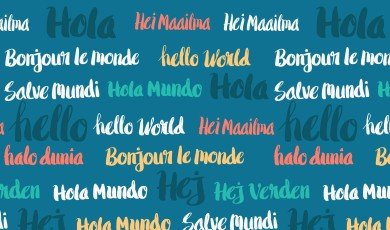
As a translator in Moldova, I have had the opportunity to work with a diverse range of clients from various industries, including legal, medical, technical, and marketing. Moldova, a small Eastern European country, has a rich history and culture, and its multilingualism makes it an ideal location for translation work.
My work as a translator in Moldova has involved a wide range of tasks, including translating legal documents, medical reports, technical manuals, and marketing materials. I have also been involved in interpreting for business meetings, conferences, and court proceedings.
One of the challenges of working as a translator in Moldova is the need to keep up with the country's dynamic language landscape. Moldova is a multilingual country, with Romanian, Russian, and Ukrainian being the primary languages spoken. Additionally, there are several other minority languages, including Bulgarian, Gagauz, and Romani, which are also recognized by the government. As a translator, it is essential to be proficient in the languages in demand and stay updated with changes in the language policies.
Gagauz is a language spoken by the Gagauz people, who are a Turkic-speaking minority in Moldova, Ukraine, Turkey, and Romania. The language is recognized as a minority language in Moldova, where it is spoken by approximately 150,000 people.
The Gagauz people are primarily concentrated in the southern regions of Moldova, particularly in the autonomous region of Gagauzia. Gagauz is one of the official languages of Gagauzia, alongside Romanian and Russian.
The Gagauz language has its roots in the Oghuz Turkic languages and is closely related to Turkish and Azerbaijani. However, the language has also been influenced by Romanian, Russian, and Bulgarian, due to the historical and cultural ties between the Gagauz people and these neighboring countries.
Despite being a minority language, there is a significant effort to preserve and promote the Gagauz language in Moldova. There are several institutions dedicated to teaching the language, including the Gagauzian University in the city of Comrat, and the Gagauzian State Theatre, which performs plays and other cultural events in Gagauz.
Overall, Gagauz is an important language in Moldova's multilingual landscape and serves as a symbol of the country's cultural diversity.
In Moldova, legal translation is one of the most in-demand translation services. Translators in this field are required to have a deep understanding of the country's legal system and be familiar with the legal terminology used in Moldova. The translation of legal documents requires a high level of accuracy, as any error or misunderstanding could have significant consequences.
Medical translation is another field in which translators in Moldova are in high demand. The country has a well-established healthcare system, and the need for accurate medical translations is crucial. Medical translators must have a good understanding of medical terminology and be able to convey complex medical concepts in a clear and concise manner.
In conclusion, working as a translator in Moldova has been a fulfilling experience for me. The diverse range of clients and industries has allowed me to develop my skills and knowledge in various fields. The multilingualism of the country has presented unique challenges, but it has also provided opportunities to learn and grow as a translator. Moldova is an excellent location for translators who are passionate about languages and interested in working with a variety of clients and industries.








